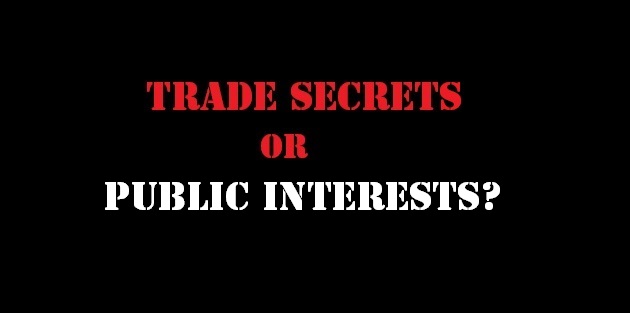EFJ calls on MEPs to uphold public interests over trade secrets

The European Federation of Journalists (EFJ) together with media organisations have called on members of the European Parliament (MEPs) to amend a draft European Directive on trade secrets that could prevents journalists from exercising their rights to freedom of expression and hamper the rights of citizens to be informed.
According to the latest discussion at the European Parliament, the draft directive contains exceptions that set out in which circumstances a journalist can disclose information that is considered trade secrets. It also includes a recital that requires Member States of the European Union (EU) to respect Article 11 (2) of the EU Charter of Fundamental Rights in order to “ensure that the Directive does not restrict journalistic works, in particular with regard to investigation, protection of sources, and the right of the public to be informed”.
However, the EFJ argues that the wording of “legitimate use” for journalists is too ambiguous and would lead to self-censorship as the responsibility to justify and prove that the disclosure of “trade secrets” is legitimate will rest on journalists and media organisations.
Mogens Blicher Bjerregård, the EFJ president said, “Although we welcome the latest changes in the draft directive to strengthen media freedom, the exceptions for journalists and whistle-blowers are not absolute. The current text is not balanced as it places commercial interests over public interests.
“In view of recent financial scandals such as Luxleaks and food safety scandals, it is unimaginable for policy makers to support a law that will legitimately allow big corporations to protect their own interests over those of the public.”
The draft directive has received many criticisms from the journalism and civil society communities. The EFJ has joined a coalition of civil society organisations and media organisations protesting against the lack of protection for journalists and whistle-blowers to disclose information that is in the public interest in the draft directive.
Élise Lucet, a well-known French investigative journalist and television host has launched a public petition and gathered almost 150.000 signatures since 4 June against the draft directive. Lucet warned that the draft directive will lead to “an unprecedented censorship in Europe” if the current text is adopted.
“As our job is to reveal information of [sic] public interest, it will be now impossible for us to inform you about whole areas [sic] of economic, social and political development of European countries,” said Lucet.
The Legal Affiars Committee of the Parliament is supposed to vote on the latest draft and the tabled amendments on 16 June. The EFJ together with media organisations call on MEPs to amend the draft directive by limiting the definition of what constitutes a trade secret and delete the vague meaning of “legitimate use” in the public interests to afford the absolute protection for journalists.
The EFJ adopted a motion in its Annual Meeting last week in Budva on trade secrets that calls on the European institutions to amend this draft in order to respect journalists’ professional protection of sources and the freedom of the press.
Video produced by Élise Lucet – Information is not a crime.











